Key takeaways:
- Citizen science fosters community involvement in wildlife conservation, allowing individuals to contribute to research and connect with nature.
- Wildlife conservation is vital for ecological balance and human well-being, reinforcing the relationship between environmental health and individual happiness.
- Participation in diverse citizen science projects enhances skills such as observation, data collection, and teamwork, emphasizing the impact of collective action.
- Personal experiences in citizen science can ignite a sense of responsibility and empower individuals to participate actively in environmental protection efforts.
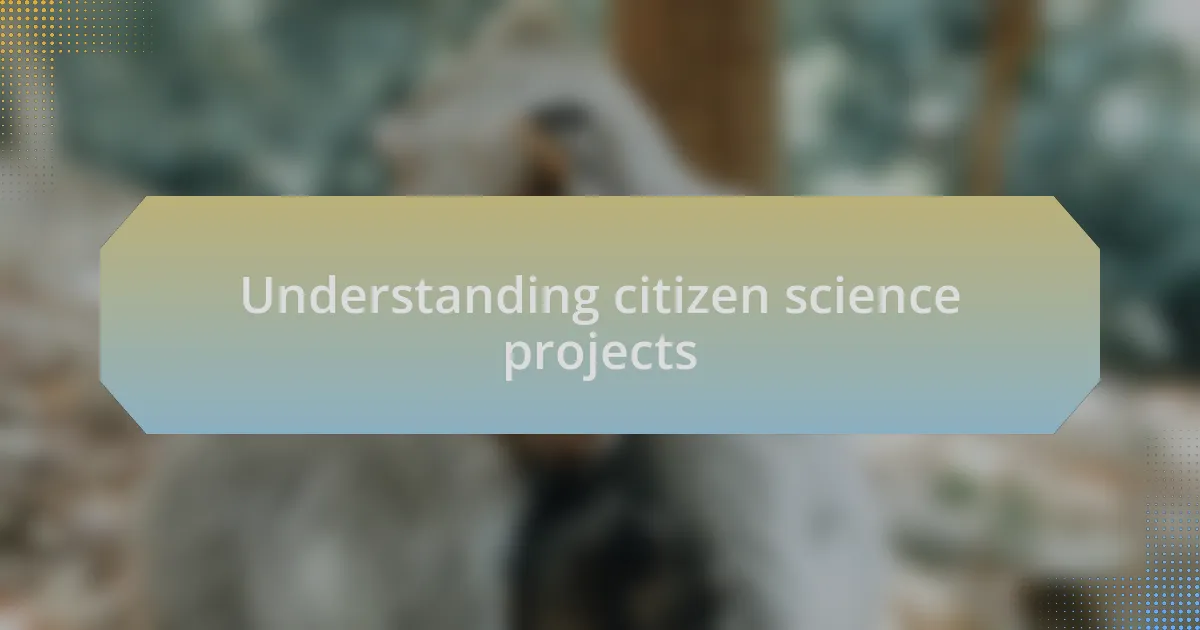
Understanding citizen science projects
Citizen science projects serve as a bridge, connecting individuals with scientific endeavors that benefit wildlife conservation. When I first participated in one, I was amazed at how my small contribution could help researchers track species populations. It made me realize how collective efforts can yield significant data, proving that everyone can play a role in preserving nature.
Participating in these projects often introduces unexpected emotional layers. I recall spending an afternoon observing birds in my local park, my heart racing every time I spotted a rare species. It wasn’t just about collecting data; it was about fostering a deeper connection with the environment and feeling a sense of responsibility for its future.
I often wonder how many people feel inspired to join these initiatives. Many assume that research is reserved for experts, but that’s misleading. Citizen science breaks down those barriers, inviting anyone with a passion for wildlife to contribute their observations and insights. Have you ever thought about how your unique perspective might enhance a conservation effort? It’s a powerful realization and one that can ignite a newfound appreciation for the world around us.
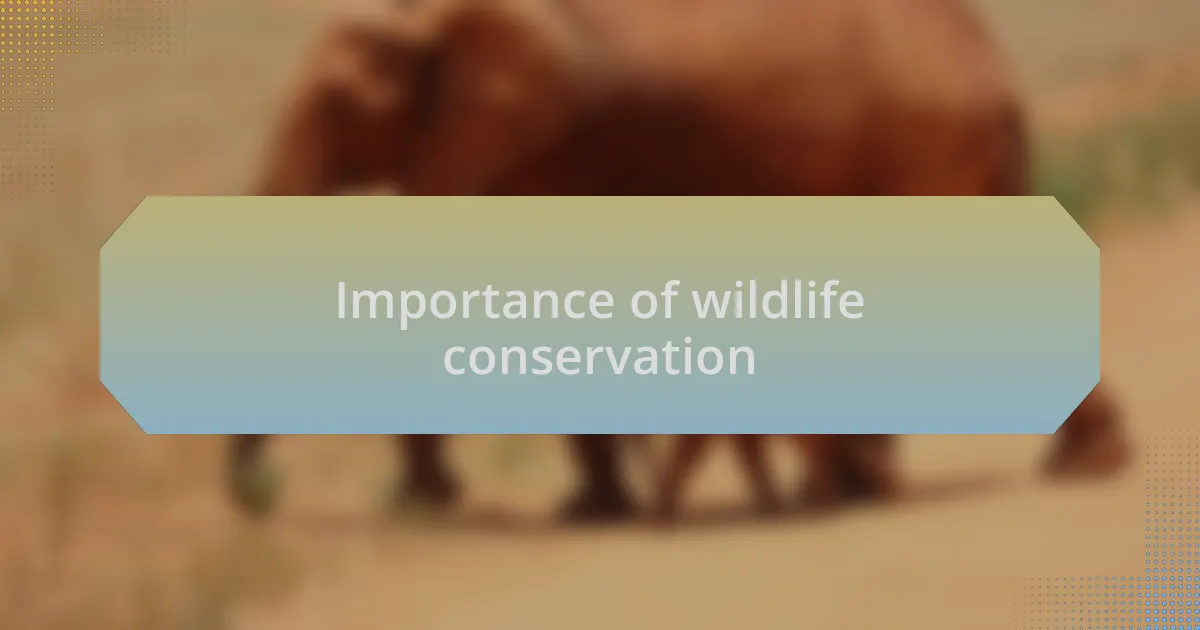
Importance of wildlife conservation
Wildlife conservation is crucial for maintaining ecological balance and preserving biodiversity. As I walked through a vibrant forest filled with the songs of various birds, I couldn’t help but reflect on how each species plays a role in that intricate web of life. Without conservation efforts, habitats face degradation, and many species risk extinction, which would have a ripple effect on the entire ecosystem.
I’ve seen firsthand the difference ethical wildlife conservation can make. When I volunteered at a local wildlife rehabilitation center, I witnessed the remarkable recovery of injured animals, reminding me of the resilience of nature. It sparked a profound respect for these creatures and deepened my understanding of our responsibility to safeguard them. How often do we think about the impact our actions have on these vulnerable populations?
Moreover, wildlife conservation promotes not just environmental health, but also human well-being. Engaging with nature, whether through hiking or participating in conservation projects, brings countless benefits to our mental health and overall happiness. Have you ever noticed how spending time outdoors can shift your perspective? That connection can motivate us to protect our natural world, ensuring future generations inherit a thriving planet.
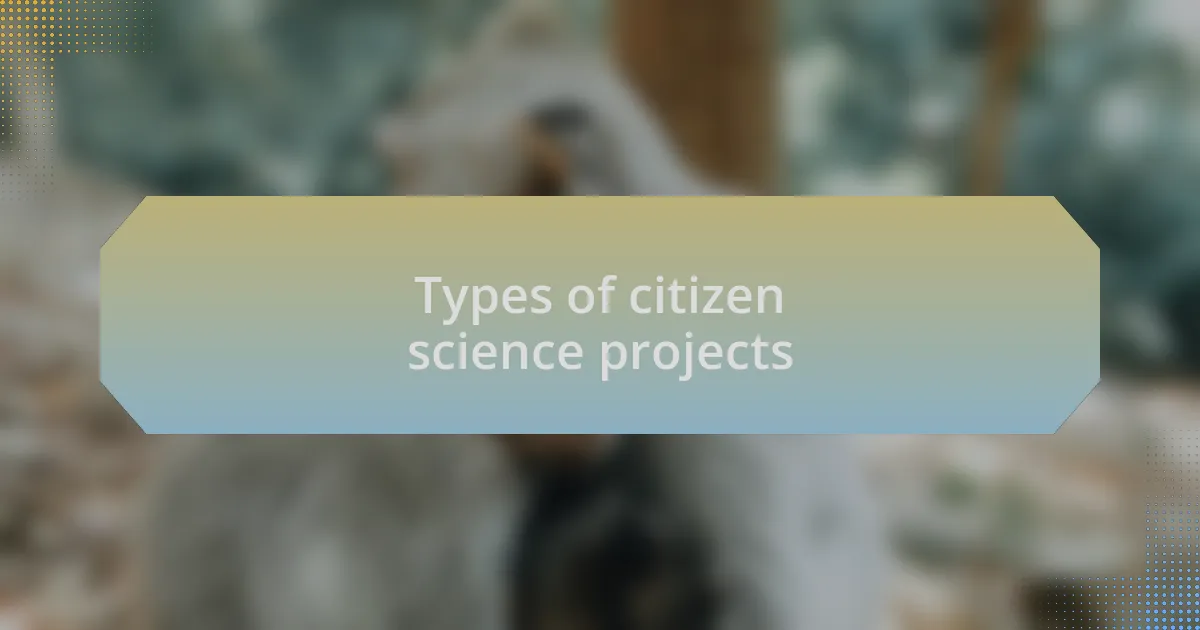
Types of citizen science projects
When it comes to citizen science, the variety of projects is truly inspiring. One type I participated in involved bird counting during the annual migration season. Each time I spotted a different species, I felt an exhilarating connection to nature’s rhythms. How can such simple actions make such a significant impact? By collecting data, we help scientists understand migration patterns and ultimately protect these incredible travelers.
Another fascinating project I joined focused on monitoring local water quality. Armed with a testing kit, I ventured out to nearby streams, where I felt a surge of responsibility as I collected samples. It struck me how interconnected our ecosystems are; the health of the water affects not just the aquatic life but also the plants, animals, and people relying on it. Have you ever thought about how your local environment can be directly influenced by the actions of a few passionate individuals?
Lastly, I took part in a habitat restoration project that involved planting native species in degraded areas. There was something profoundly rewarding about getting my hands in the dirt and working alongside others who shared my passion. Each sapling symbolized hope for the future, reminding me that collective efforts can reverse the harm done to our landscapes. How incredible is it to think that each plant nurtured could support countless organisms? Together, we’re helping to rebuild the foundation of our local ecosystems.
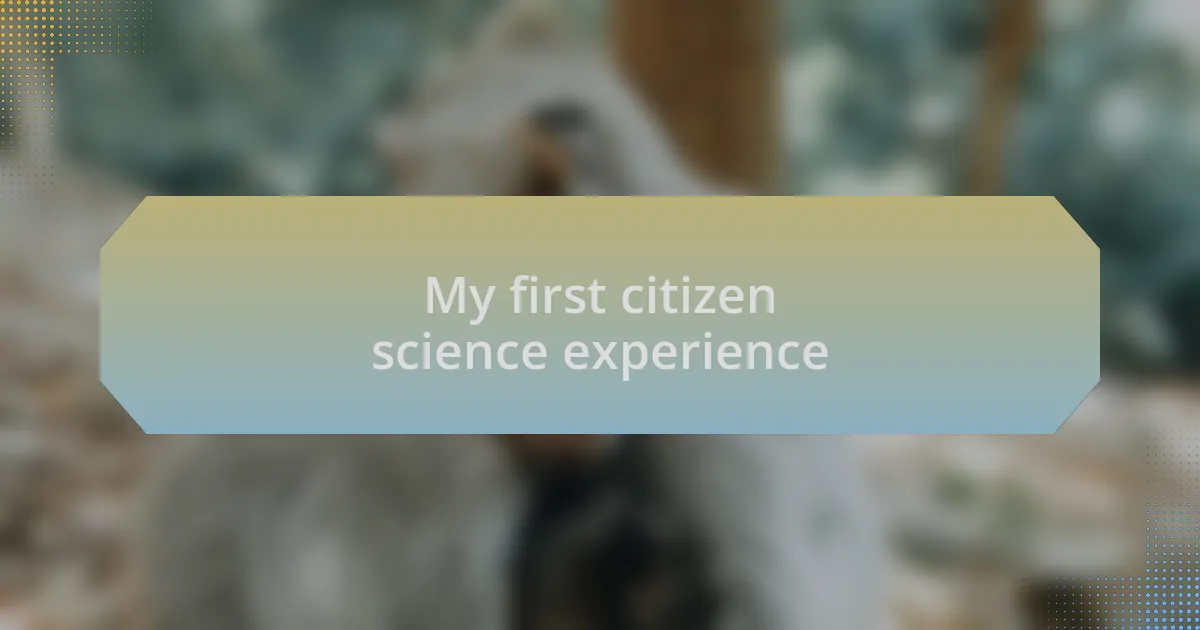
My first citizen science experience
My first citizen science experience was unforgettable. I remember standing in a field early one spring morning, binoculars in hand, heart racing with anticipation. Each chirp and flutter felt like a whisper from nature, urging me to pay attention. That day, as I recorded each bird sighting, I realized I wasn’t just observing; I was contributing to something much larger. Have you ever felt that thrill of knowing your efforts could lead to real change?
In that moment, I encountered a magnificent red-tailed hawk gliding above me. Instinctively, I scrambled for my notebook to jot down the details. It struck me how I’d embarked on a simple activity, yet here I was, actively participating in a nationwide effort to track these majestic birds. It was empowering to think that, through this collective knowledge, we could inform conservation strategies. Do you remember a time when your passion transformed into action?
Reflecting on that first experience, I can still feel the rush of excitement and responsibility. I wasn’t just part of a project; I was part of a community dedicated to protecting our environment. Each observation I made felt like a thread woven into a larger tapestry of conservation. Have you explored how your small actions contribute to a global mission? That’s the beauty of citizen science—it connects us, inspires us, and reminds us that every contribution matters.
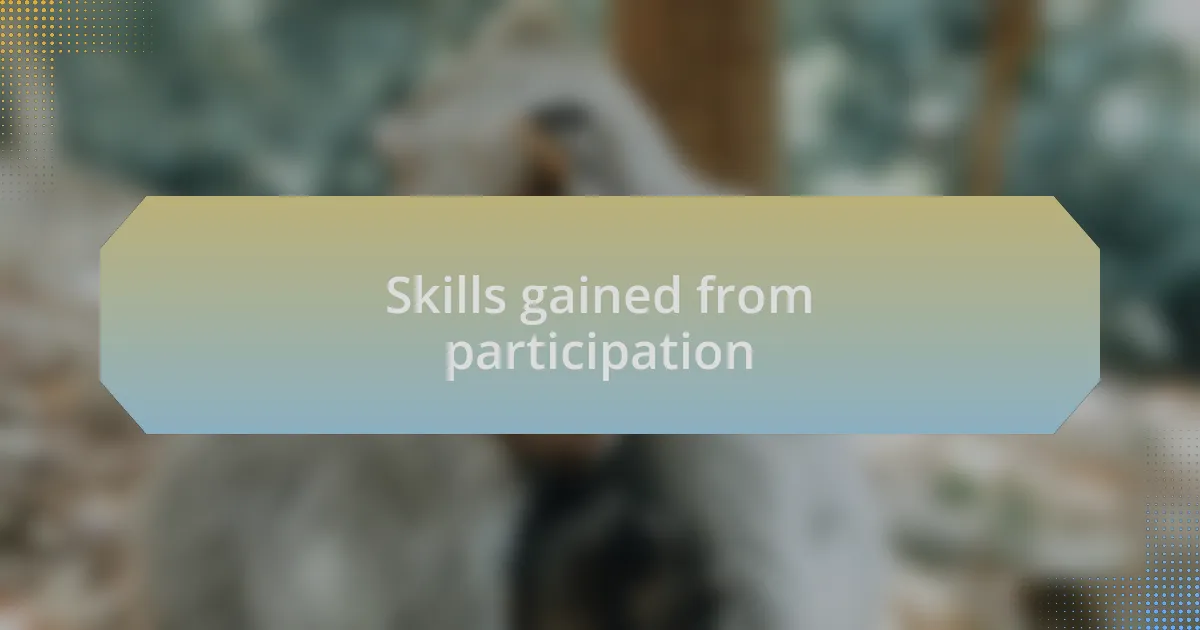
Skills gained from participation
Participating in citizen science has sharpened my observational skills significantly. I often find myself noticing subtle details in nature that I previously overlooked—like the unique markings on a butterfly’s wings or the – slight variations in bird calls. Each project pushed me to intensively observe my surroundings, turning every outing into a valuable learning experience. Have you ever realized how much you can learn by simply slowing down and paying closer attention?
Beyond observation, I’ve honed my data collection and analysis skills. When tasked with entering data into databases, I learned the importance of accuracy and consistency. This meticulous attention to detail not only enhances the projects I contribute to but has also translated into my daily life, where I now approach tasks with a more methodical mindset. Have you considered how precise data could inform conservation efforts?
Additionally, collaborating with a diverse group of volunteers has significantly improved my communication and teamwork abilities. Sharing insights and ideas with passionate people reinforces the importance of collaboration in achieving common goals. Each encounter not only broadens my perspective on wildlife conservation but also deepens my appreciation for the collective effort involved in these projects. Isn’t it inspiring to see how people from different backgrounds come together for a shared purpose?